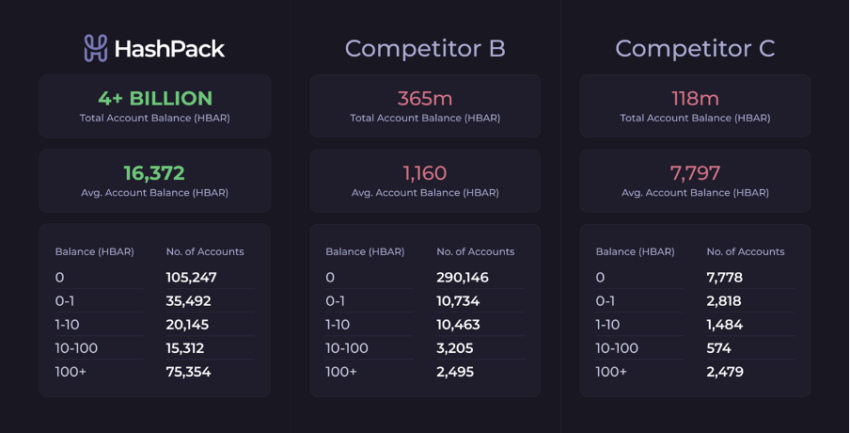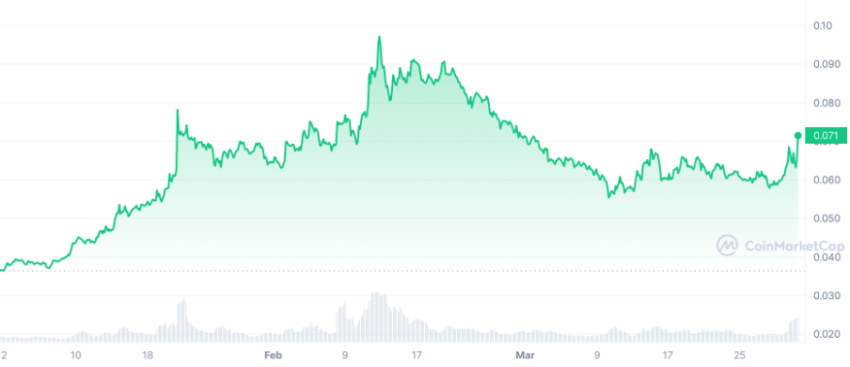Hedera Blockchain Technology to Drive Democratic Change in the United States

Private businesses often develop and promote blockchain technology, but sometimes they work with government agencies toward a common goal. Recently, the crypto network Hedera (HBAR) partnered with the US State Department in an effort to promote transparency.
The trust deficit between citizens and governments is growing in many democracies around the world. One reason is a growing awareness of corruption and disinformation, which erodes trust in state institutions and democratic processes. Consider the ongoing street protests in France over certain areas of public policy.
Adopting an interdisciplinary approach that leverages the strengths of different fields, including technology, is one way to meet the challenge.
Blockchain technology is a modern tool that can help promote transparency and accountability in public processes. It has a distributed ledger that enables secure, transparent and tamper-proof conduct of transactions. By using blockchain, governments can build a more reliable and accountable system that enables citizens to verify the accuracy of public records and transactions.
The sky is the limit
Blockchain technology is a revolutionary tool with the potential to transform various aspects of society, including human rights, transparency and sustainability. Critical here is the activation of distributed ledger technology (DLT). Blockchain and Distributed Ledger Technology (DLT) are related concepts that have gained popularity as tools to enhance transparency, security and efficiency in various industries.
At its core, blockchain is a type of DLT that consists of a decentralized digital ledger of transactions maintained by a network of computers or nodes. Each block in the chain contains a list of validated transactions and a unique cryptographic hash linking it to the previous block. This creates a chronological and immutable record of all transactions on the network that cannot be changed retroactively without the network’s consensus.
DLT, on the other hand, refers to a broader category of distributed databases that allow multiple participants to have simultaneous access to the same data without needing a central authority. In addition to blockchain, other types of DLT include directed acyclic graphs (DAGs), hashgraph, and Tangle.
Where Blockchain comes into play
It is useful to explore the potential of blockchain technology to improve three critical areas of the political, economic and social landscape.
Human rights
One of the benefits of blockchain technology is its ability to provide an immutable and decentralized record of transactions. This property of blockchain technology can be exploited to develop transparent and tamper-proof systems that can help protect human rights. For example, blockchain-based systems can record and store critical data such as property ownership, identity and land registration. By doing so, blockchain technology can help reduce fraud, corruption and other abuses in centralized systems.
Also, blockchain technology can be used to promote decentralized systems that can help protect the privacy and security of individuals. For example, blockchain-based techniques can be used to develop self-sovereign identities, where individuals are in control of their data and can choose what information to share with whom.
Transparency
Transparency is essential to promote accountability and reduce corruption in various sectors within the public sector, finance and supply chain. Blockchain technology can provide an immutable and transparent record of transactions that can help increase trust and reduce fraud.
For example, blockchain-based systems can be used to develop decentralized voting systems that are transparent and tamper-proof. By doing so, blockchain technology can help prevent fraud and promote trust in the democratic process. In addition, blockchain-based systems can create transparent supply chains that can help reduce environmental and human rights violations.
Sustainability
Sustainability is one of the most critical issues facing our planet today. Blockchain technology can create decentralized systems that contribute to sustainability.
Blockchain-based systems can, for example, promote transparent and tamper-proof systems for tracking carbon credits. By doing so, blockchain technology can help reduce greenhouse gas emissions and promote sustainability. In addition, blockchain-based networks can fuel decentralized systems for managing natural resources such as forests and water. By doing so, blockchain technology can help reduce deforestation, promote sustainable agriculture and promote water conservation.
Helps the Cause and the Government
The US government has backed one of the digital currencies for its role in empowering democratic change. According to a recent State Department announcement shared with BeInCrypto, Hedera (HBAR) has committed to promoting democracy. Here, the decentralized group is in the company of 150 prominent firms, including the likes of Microsoft, Meta and others.
The report reads:
“Hedera is committed to convening a democracy roundtable on how blockchain technologies can and do support human rights, transparency and sustainability. Current democracy-related applications of blockchain include accountability for public systems, combating misinformation, reducing data manipulation and tracking financial flows.”
The cooperation with the US government agency is indeed a big step for the crypto market as a whole.
Stories around the ecosystem
Enthusiasm for the network in question has been great. Hedera recently crossed the milestone of completing 6 billion transactions on the Mainnet.
Today, the number of transactions is close to 6.20 billion. In addition, HashPack, a leading HBAR wallet, achieved 250,000 account creations.

The community also has high expectations for the upgrade, which is planned for 31 March. This development came just weeks after the network witnessed “technical irregularities” in its smart contract.
Zooming out, the amalgamation of all these narratives helped the coin (HBAR) increase by more than 9%. On CoinMarketCap, the #30 coin was trading at $0.0714.

The question arises here: Why was Hedera the only participant from the crypto community? Multiple networks include immutable record keeping, decentralized decision making, publicly available data, and smart contracts. BeInCrypto reached out to the Hedera team for a response, but had not received a response by the time this article went to press.
Nevertheless, blockchain technology, implemented responsibly, can build transparency into government processes and promote greater inclusion in public decision-making. Built-in aspects of blockchain, such as transparency and data immutability, have the potential to improve service provision for constituents.
Disclaimer
In accordance with Trust Project guidelines, this feature article presents the opinions and perspectives of industry experts or individuals. BeInCrypto is dedicated to transparent reporting, but the views expressed in this article do not necessarily reflect the views of BeInCrypto or its employees. Readers should verify information independently and consult with a professional before making decisions based on this content.
























